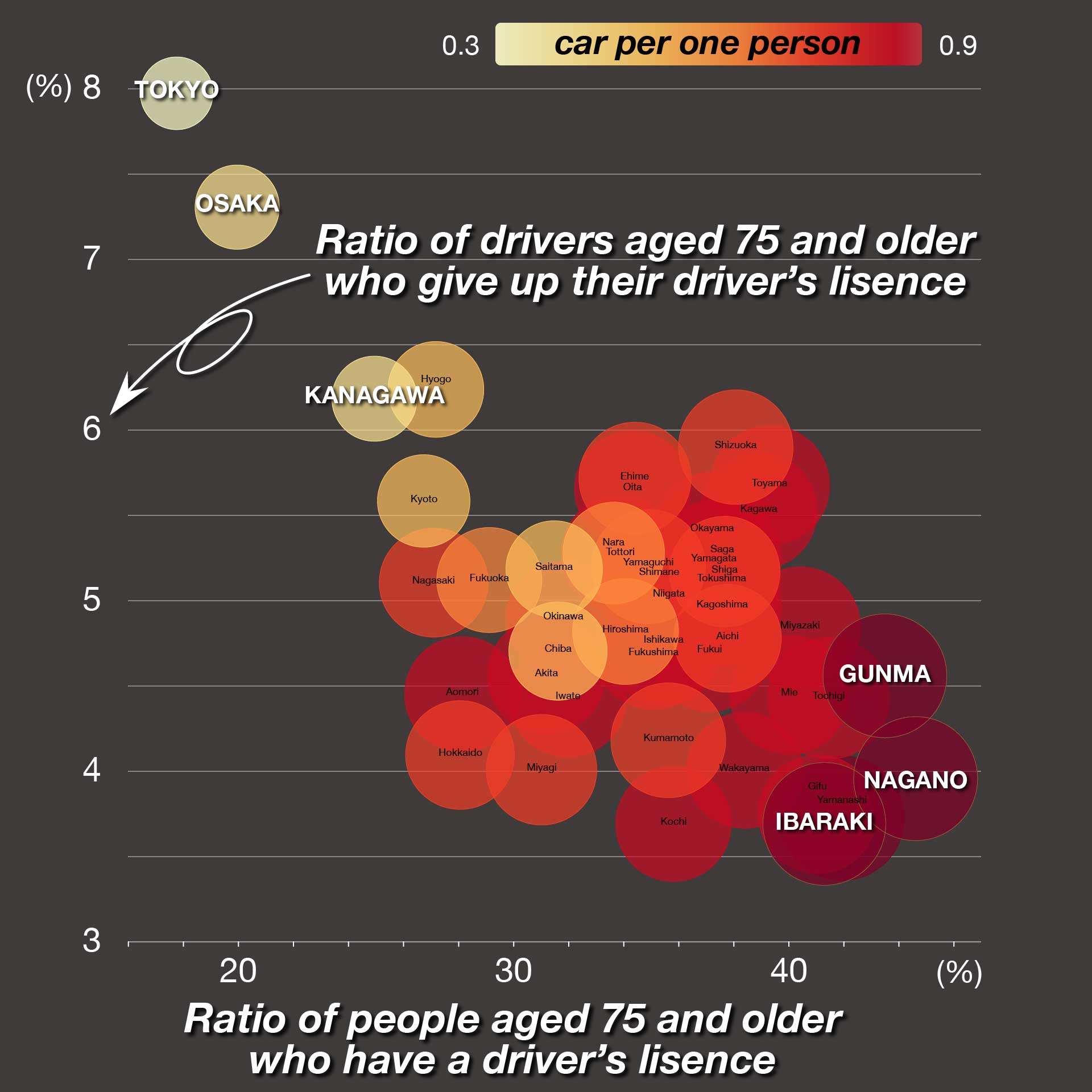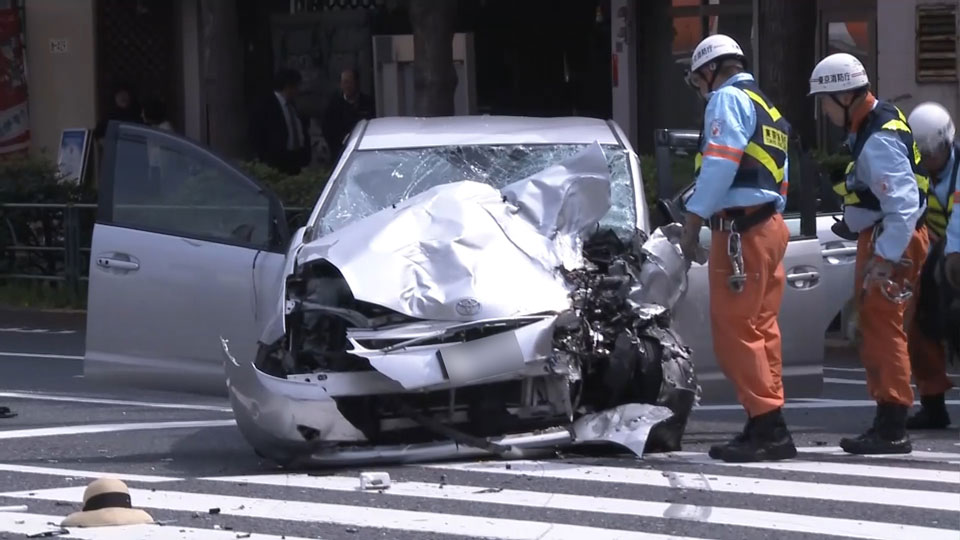In April, an 87-year-old man rammed his car into pedestrians in Tokyo, killing a woman and her 3-year-old daughter. Two months later, a man in his 80s drove at high speed on the wrong side of a road in Fukuoka City. The driver and his wife died. Seven others were injured.
The police are urging elderly drivers to hand in their licenses as soon as they feel uneasy behind the wheel. But last year, just 5.41% of drivers aged 75 or older did.

The chart above suggests why so many are reluctant to give up their wheels for good. In urban areas with a well-developed public transport system, such as Tokyo, Osaka and Kanagawa, which contains Yokohama, people have alternative means of getting around. But for those in rural prefectures such as Nagano, Gunma and Ibaraki, a car can be a lifeline.
Nearly 8% of the over 75s in Tokyo volunteered their licenses last year. In Ibaraki, the figure was less than 3.7%.

The Japanese government is now considering a change to the driving license system. Elderly drivers would be limited to what's called "safety support cars," which are fitted with automatic brakes and other functions to prevent accidents. Some such vehicles are already on Japan's roads.
A panel of experts at the National Police Agency is considering the system, but not everyone is convinced it would make the roads safer.
Some experts believe the new technology will make elderly people overconfident in their driving skills, and it won't prevent steering mistakes.
Yoko Muramatsu is a researcher at NLI Research Institute, a think tank that looks at issues around aging societies. She suggests it may be better to introduce a license that limits when and where the elderly can drive.
She notes that Japan is not the only country trying to figure this out. China has set a retirement age for drivers, for example. Germany and Ireland both restrict seniors to driving only in the daytime within a certain distance of their homes.
But a 2014 report by the European Commission cautioned that age alone was a poor indicator of driving safety, and keeping the elderly from their vehicles could expose them to negative outcomes in terms of safety, mobility or health.


